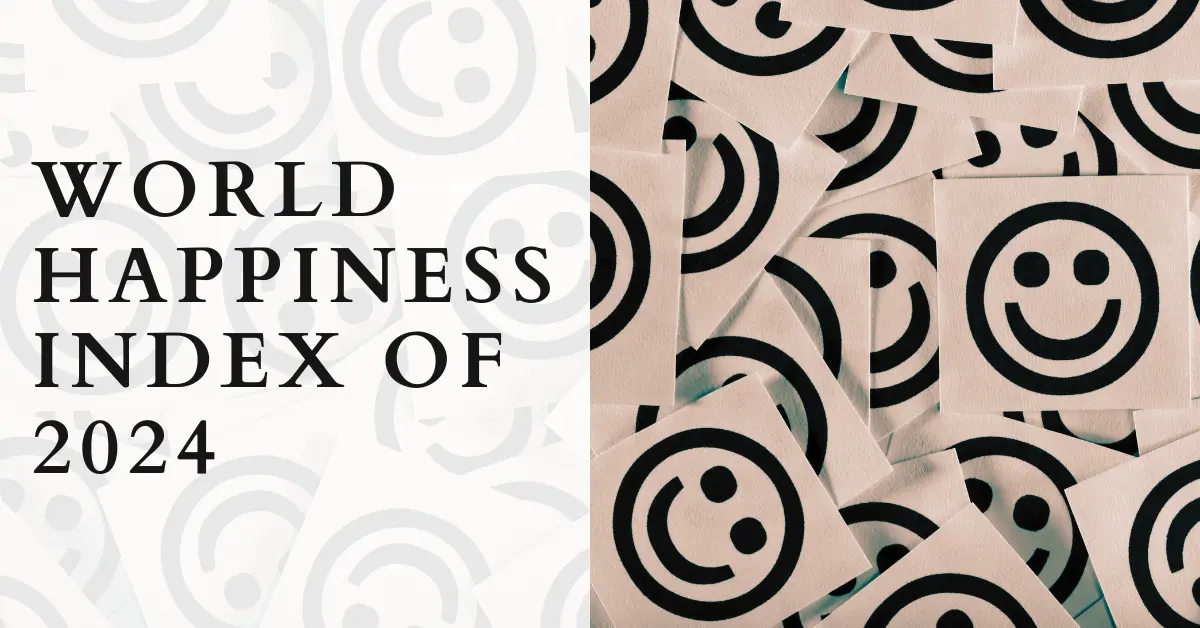In the latest edition of the World Happiness Report, Finland emerges as the happiest nation for the seventh consecutive year, reaffirming its position at the zenith of global happiness. However, amidst this celebration of joy, a significant shift is witnessed as the United States experiences a downward spiral in happiness rankings. Let’s delve deeper into the intricacies of this annual report and explore the factors behind these fluctuations.
The World Happiness Report: A Comprehensive Overview
Understanding the Survey
The World Happiness Report, conducted annually by the United Nations, meticulously evaluates various countries based on a myriad of factors contributing to overall well-being. These include life satisfaction, GDP per capita, social support, healthy life expectancy, freedom, generosity, and corruption.
Finland’s Unwavering Happiness
For the seventh consecutive year, Finland secures the top position in the global happiness index, followed closely by Denmark, Iceland, and Sweden. This consistent dominance underscores Finland’s commitment to fostering societal well-being and happiness.
The US Struggles: A Surprising Decline
In a surprising turn of events, the United States witnesses a decline in its happiness ranking, plummeting from the 16th position last year to 23rd this year. This decline raises pertinent questions about the underlying factors contributing to the diminishing happiness levels in one of the world’s largest economies.
Noteworthy Rankings and Observations

The top 10 happiness rankings (worldwide)
| 1 | Finland |
| 2 | Denmark |
| 3 | Iceland |
| 4 | Sweden |
| 5 | Israel |
| 6 | Netherlands |
| 7 | Norway |
| 8 | Luxembourg |
| 9 | Switzerland |
| 10 | Australia |
The top 10 happiness rankings (Asia)
| 1 | Singapore |
| 2 | Taiwan |
| 3 | Japan |
| 4 | South Korea |
| 5 | Philippines |
| 6 | Vietnam |
| 7 | Thailand |
| 8 | Malaysia |
| 9 | China |
| 10 | Mongolia |
Also Read: PM Narendra Modi and President Putin Strengthen Special Partnership in Call
International Happiness Landscape
European Ascendancy
Several Eastern European nations seize the opportunity to ascend the happiness ladder, capitalizing on the shifting dynamics within the global landscape. Countries like Lithuania, Serbia, Bulgaria, and Latvia register notable improvements, reflecting their concerted efforts towards enhancing societal well-being.
Middle Eastern and Asian Perspectives
While Middle Eastern nations like the UAE and Saudi Arabia secure respectable positions, Asian countries such as Singapore, Japan, and South Korea navigate diverse happiness trajectories. These regional variations underscore the complex interplay of cultural, socio-economic, and political factors shaping individual perceptions of happiness.
Gender Disparities
The report highlights significant gender disparities in happiness levels, with women consistently reporting lower levels of happiness compared to men across all regions. Moreover, these disparities tend to exacerbate as individuals age, signaling a concerning trend that warrants further exploration and intervention.
Exploring Happiness Dynamics Across Generations
Youthful Exuberance vs. Senior Serenity
A noteworthy finding of the report is the disparity in happiness levels across different age groups. While younger generations exhibit higher levels of happiness in most regions, exceptions like North America and Australia witness a reversal of fortunes, with older generations surpassing their youthful counterparts in happiness indices.
The Influence of Socio-economic Factors
The report underscores the pivotal role played by socio-economic factors in shaping individual perceptions of happiness. Factors such as education, marital status, and social engagement emerge as critical determinants, highlighting the need for targeted interventions aimed at fostering inclusive growth and societal cohesion.
Unveiling the Secrets Behind Finland’s Happiness
Nature’s Embrace
Finland’s close connection to nature emerges as a cornerstone of its happiness paradigm, offering its residents unparalleled opportunities for rejuvenation and solace amidst pristine natural landscapes.
Balancing Act: Work and Life
The Finnish approach to work-life balance serves as a blueprint for happiness, emphasizing the importance of prioritizing personal well-being over relentless pursuit of professional success.
Trust and Transparency
A culture of trust permeates Finnish society, underpinned by transparent governance structures and low levels of corruption. This sense of trust fosters social cohesion and collective resilience, essential ingredients for sustainable happiness.

